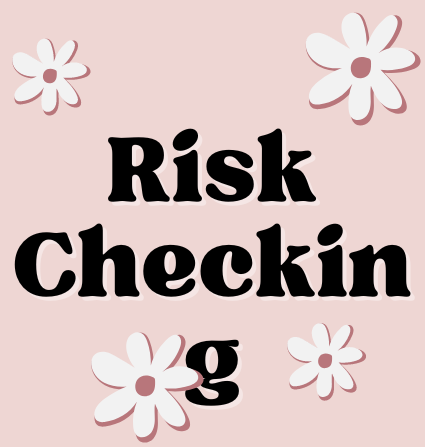
It’s that time of year again. The time when students all over the world are frantically trying to study for exams. Whether it’s finals week in college or high-stakes tests like the SAT or ACT, exam season is always a stressful time. But it doesn’t have to be! With a little bit of planning and organization, you can make studying for exams a breeze. we’ll explore 7 tips on how to study better for exams. From making a study schedule to taking practice tests, these tips will help you ace your next exam.
Table of contents
- Understand how you learn best
- Make a study schedule and stick to it
- Get rid of distractions
- Take breaks
- Create a positive study environment for yourself
- Practice active listening and memory techniques
- Reward yourself!
Understand how you learn best
We all learn differently. Some of us are visual learners and others are auditory learners. Some of us learn best by doing, while others learn best by listening and watching. Understanding how you learn best is the first step to studying better for exams.
If you’re a visual learner, try creating mind maps or flow charts to organize information. If you’re an auditory learner, try recording yourself reading your notes out loud or listening to audio recordings of lectures. If you’re a kinesthetic learner, try active studying techniques like flashcards or role-playing.
Experiment with different techniques and find what works best for you. Once you know how you learn best, you can tailor your study habits to fit your needs and make studying more effective and efficient.
Make a study schedule and stick to it
Assuming you have a set amount of material to cover and a set number of days until the big test, the first step is to make a study schedule. This can be as simple as sitting down with a piece of paper and pencil and drawing up a timetable for each day between now and then, or using an online tool like Google Calendar.
But there’s more to it than just making a schedule. You need to make sure you stick to that schedule! That means setting aside dedicated time each day specifically for studying, and not letting anything else get in the way. Let your friends and family know when you’re studying so they don’t distract you, turn off your phone, and find a quiet place where you can focus.
Get rid of distractions
It can be hard to concentrate on studying for exams when there are so many potential distractions around. Here are some tips to help you get rid of distractions and focus on your studies:
1. Get rid of distractions
2. Set a study schedule
3. Take breaks
4. Create a positive study environment
5. Get plenty of rest and exercise
Take breaks
1. Take breaks
If you’re cramming for an exam, it’s important to take breaks. When you study for long periods of time without a break, your brain gets tired and you start to lose focus. By taking breaks, you can keep your energy up and avoid burnout.
There are a few different ways to take breaks while studying. One way is to set a timer for yourself and take a five-minute break every hour. During your break, you can do something active like walk around or stretch. Alternatively, you can take a longer break every couple of hours. For example, you could study for 45 minutes and then take a 15-minute break.
It’s also important to make sure that you’re taking breaks during the day, not just when you’re studying. Taking frequent breaks will help you stay fresh and focused throughout the day.
Create a positive study environment for yourself
A positive study environment is key to success on exams. Follow these tips to create a study space that works for you:
1. Make sure your study space is well-lit and comfortable. You should be able to sit or stand in your space without being uncomfortable.
2. Organize your study materials so they’re easy to find and use. This includes things like setting up a filing system for papers and making sure your desk is clear of clutter.
3. Get rid of distractions. Turn off the TV, put away your phone, and close the door to any room that might have outside noise. If you need background noise to focus, try using a white noise machine or listening to classical music.
4. Take breaks often. It’s important to give yourself time to relax and re-energize throughout the studying process. Taking 5-10 minute breaks every hour or so can help you stay focused and avoid burnout.
Practice active listening and memory techniques
Active listening is a skill that can be learned and practiced. It involves paying attention to the speaker, taking time to understand what is being said, and asking questions when needed.
There are several memory techniques that can be used to help remember information. One technique is to create a mnemonic device, which is a tool that uses words, numbers, or pictures to help remember information. Another technique is called chunking, which involves breaking down information into smaller pieces so that it is easier to remember.
Both of these techniques require practice and patience. However, if you are willing to put in the effort, they can be very effective in helping you remember information for your exams.
Reward yourself!
It can be easy to get bogged down in the stress of studying for exams, but it’s important to take breaks and reward yourself for all your hard work! Here are some great ways to do just that:
1. Take a break from studying and do something you enjoy. Whether it’s watching your favorite show, going for a walk, or taking a nap, taking some time for yourself will help you relax and recharge.
2. Make a study schedule and stick to it. Give yourself specific times to study, and then take a break when you’re done. This will help you stay on track and avoid burnout.
3. Get organized. Create a system that works for you, whether it’s color-coding your notes or using a planner to keep track of deadlines. Having everything in its place will help you feel more in control and less stressed.
4. Talk to someone who can help. If you’re feeling overwhelmed, talking to a friend, family member, or therapist can be a big help. They can offer support and guidance on how to best manage your stressors.
5. Seek out resources. There are tons of great books, articles, and websites out there with tips on how to study better for exams. Do some research and find what works best for you!

